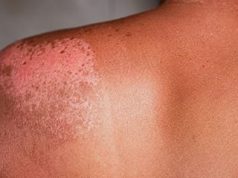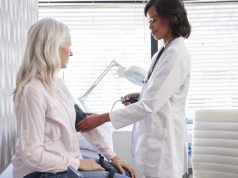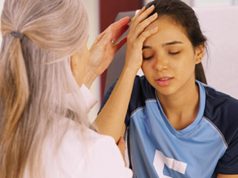Participants agree to donate their brains upon death and to let researchers track their health through annual checkups during their lifetime
By Physician’s Briefing Staff HealthDay Reporter
FRIDAY, May 19, 2023 (HealthDay News) — A new brain bank is accepting future donations from living athletes in an effort to perform long-term research into the effects of sports-related concussion. The National Sports Brain Bank (NSBB) at the University of Pittsburgh will track the health of living participants on an annual basis and will autopsy their donated brains after their death.
“We want to follow prospective donors longitudinally while they’re still alive and get information from them about their sports participation, trauma, history, other medical history, any symptoms they may experience,” Julia Kofler, M.D., director of the NSBB, said during a press briefing. “We can then correlate their clinical information with what we see down the road under the microscope, at the time of autopsy.”
Two former NFL stars — Hall of Fame running back Jerome Bettis and former Pittsburgh Steelers running back Merril Hoge — pledged at a news conference announcing the NSBB to stand among the first group of pro athletes who will participate in the brain bank.
Sports concussions have been linked to chronic traumatic encephalopathy (CTE), but one of the challenges in researching CTE is that patients are often studied only after death, Kofler said.
The endeavor is casting a wide net for participants. Anyone who has played a contact sport at any time in their lives can sign up to donate their brain. “These can be the traditional contact sports like football, boxing, wrestling, hockey, soccer, but also other sports that you may not think of like equestrians, motocross riding, or cheerleading,” Kofler said. “All of these participants may be at an increased risk for concussions.”
Invitations will be also extended to lower-level players. “In addition to professional athletes, the research team will invite former athletes who participated in a variety of contact sports, whether that was playing on a high school level, college level, or recreationally,” said Anantha Shekhar, M.D., dean of the University of Pittsburgh School of Medicine. “Importantly, athletes who have not previously incurred a sports-related brain injury can also participate. The registry is open to all comers.”
The brain diseases to be studied by the NSBB will not be limited to CTE. “Researchers at the National Sports Brain Bank will use donated tissue from adults who played a wide range of contact sports at the amateur or professional level to investigate the frequency and severity of chronic traumatic encephalopathy or CTE, and to screen for neurodegenerative disorders like Alzheimer’s and Parkinson’s disease and ALS,” University of Pittsburgh Chancellor Patrick Gallagher said during the news conference.
Copyright © 2023 HealthDay. All rights reserved.








